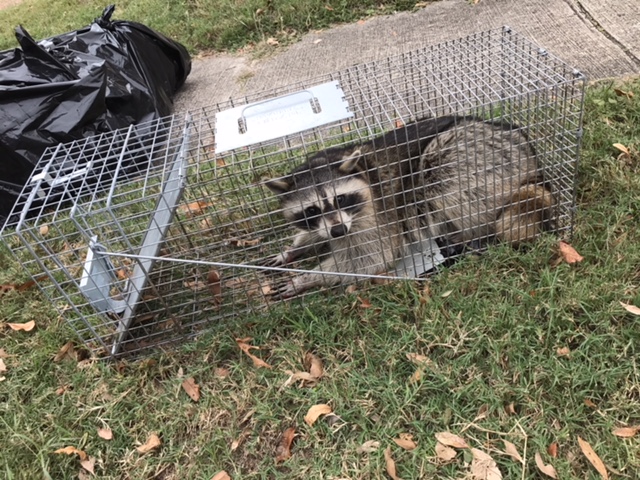Raccoons are well-known animals that often visit neighborhoods and wooded areas. These clever creatures are famous for their intelligence and adaptability, but there is much more to them than meets the eye. In this blog, we’ll share five interesting facts about raccoons that highlight their unique characteristics.

1. Raccoons Have Highly Skilled Hands
One of the most fascinating traits of raccoons is their hands. With five fingers on each hand, raccoons have incredible dexterity. This allows them to open containers, unlatch doors, and climb with ease. Their sense of touch is highly developed, and they often rely on it to locate food, especially in the dark.
This dexterity is why raccoons are so good at scavenging. They’ve even been known to use water to improve their ability to feel objects, a behavior that shows how clever they are.
2. Raccoons Are Mostly Active at Night
Raccoons are nocturnal, which means they are most active at night. Their sharp night vision helps them explore and find food when it’s dark. This is why they are often spotted rummaging through trash bins or moving around neighborhoods while everyone else is asleep.
However, seeing a raccoon during the day is not always a cause for concern. While they prefer the night, they are adaptable and can sometimes be active during daylight hours.
3. Raccoons Are Problem-Solving Experts
Raccoons are incredibly intelligent animals. They are great problem-solvers and can figure out how to open jars, escape traps, and navigate through obstacles. Studies have even shown that raccoons can remember solutions to problems for years.
This intelligence often makes expert raccoon removal necessary when they invade homes or attics. Their cleverness allows them to find entry points or access food sources, making professional solutions essential to address the issue humanely.
4. Raccoons Sometimes Form Winter Groups
While raccoons are mostly solitary, they can be social during winter. In colder months, raccoons may share dens to stay warm, often grouping with siblings or a mother and her young.
Raccoons do not hibernate but become less active in winter, saving energy by reducing their activity. This is also when you might notice more wildlife in your backyard, as animals look for shelter and food during colder weather.
5. Raccoons Thrive in Many Environments
Raccoons are extremely adaptable and can live in various habitats, from forests to cities. They are opportunistic feeders, eating fruits, nuts, small animals, and even leftover human food.
Their ability to thrive near people sometimes leads to issues, as they might enter homes or gardens. Using professional raccoon exclusion methods, such as sealing entry points and removing attractants, can help prevent them from settling too close to your property.
Raccoons and Your Home: Insights and Responsible Management
Raccoons are fascinating creatures with unique abilities. From their dexterous hands to their intelligence and adaptability, they stand out as one of the most interesting animals in the wild. While they can sometimes cause issues, understanding their behavior helps us appreciate their role in nature.
If you’re dealing with wildlife in the yard or raccoons near your home, take steps to manage the situation responsibly. Raccoons are a remarkable part of our natural world, but keeping your property secure ensures harmony between humans and wildlife.
Take control of your space with Ginx Rodent and Wildlife Removal! Our skilled team specializes in humane raccoon removal and exclusion, ensuring your home stays safe. Contact us today for reliable solutions to keep wildlife where it belongs—outdoors!







